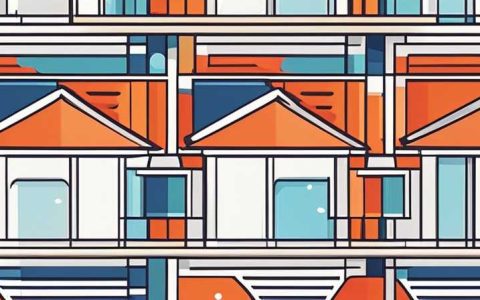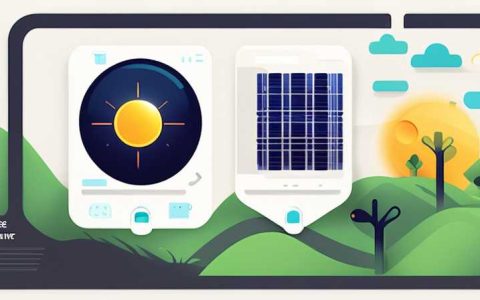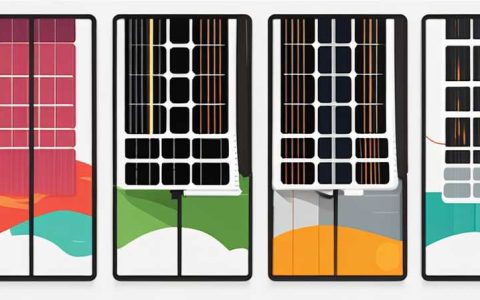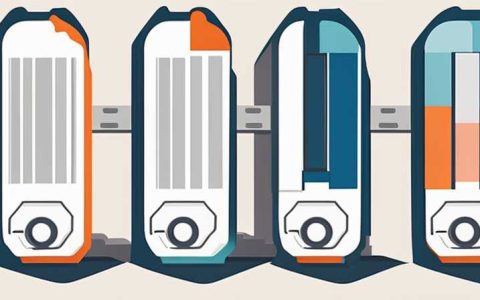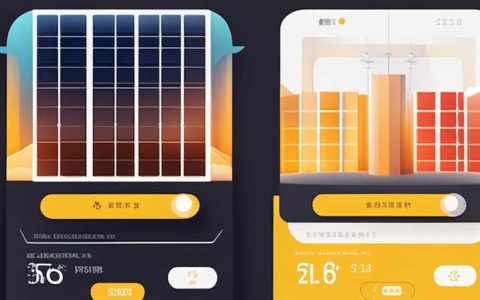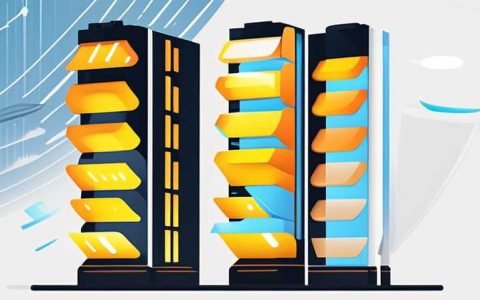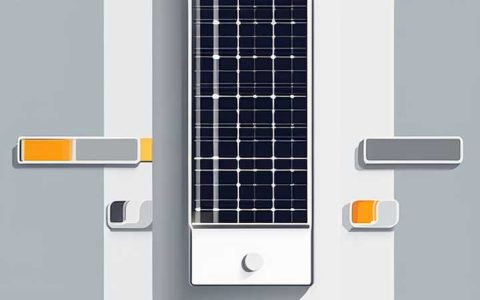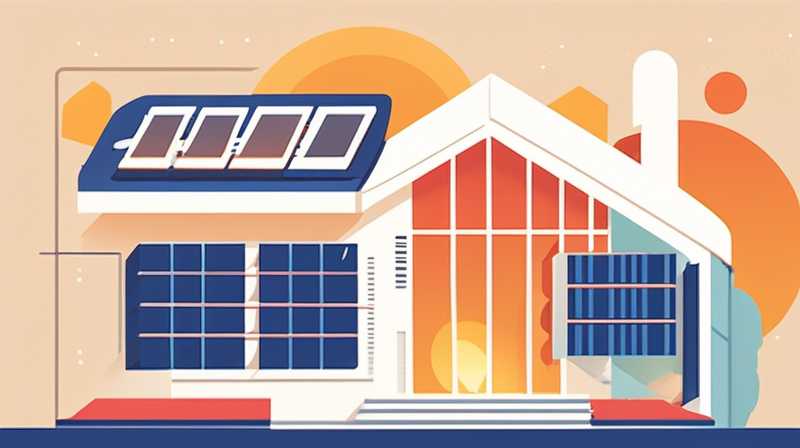
If the solar energy system persists in experiencing issues, a comprehensive assessment should be initiated. 1. Identify the root cause, 2. Perform regular maintenance checks, 3. Consult with a professional, 4. Upgrade infrastructure, and analyze the entire system setup. For optimal performance, it’s imperative to trace the symptoms leading to systemic failure, as the chain of events can significantly impact efficiency.
1. IDENTIFYING THE ROOT CAUSE
Recognizing the root of the complications plaguing a solar energy system requires dedicated analytical examination. Many solar energy installations encounter trifling dilemmas that can often be rectified through basic troubleshooting and adjustments. Common issues include underperformance due to shading from trees or buildings, faulty components, or improper installation. Establishing whether the panels are correctly angled and free from obstructions is essential.
Moreover, electrical connections must be in good order. Faulty connections or corroded wiring can lead to significant power loss. This key element of solar systems is frequently neglected but is fundamental to their overall operation. An assessment should extend to the inverter’s functionality as it is responsible for converting the sunlight captured into usable electricity. An inverter that malfunctions may present as an issue with the solar panels themselves when, in fact, it may merely be the converter experiencing technical failure.
2. PERFORMING REGULAR MAINTENANCE CHECKS
Establishing a regular maintenance regime can substantially enhance the life span and efficiency of solar panels. Periodic inspections can reveal issues such as dirt accumulation, which can impede efficiencies by blocking sunlight. Regular cleaning is imperative; dust, bird droppings, and leaves can create performance discrepancies that, while easily remedied, can accumulate to notable energy losses over time.
Furthermore, it is prudent to keep track of system performance through monitoring tools. Modern solar energy systems often integrate monitoring applications that can give real-time feedback on energy production. Identifying sudden drops in performance may indicate that a quick inspection is necessary. The use of advanced technology makes it feasible to proactively address issues before they escalate into significant failures. Therefore, setting aside time for routine checks is not merely a preventive measure but an essential practice for optimal functionality.
3. CONSULTING WITH A PROFESSIONAL
Engaging with skilled professionals can render significant benefits, especially when problems appear to exceed standard home repairs. Professional technicians bring expertise and specialized knowledge that is often crucial in diagnosing complex issues which may not be discernible to the untrained eye. Consulting with a team that specializes in solar energy systems can minimize unnecessary risks associated with electricity and structural safety.
Moreover, techniques and tools employed by professionals can clarify the operational intricacies of solar technologies. If a significant electrical fault is present, DIY attempts could prove dangerous. A technician can not only resolve existing issues but also make recommendations for upgrades and improvements to enhance system durability long-term. Extensive experience equips them with insights on common dilemmas specific to regional characteristics, allowing for tailored solutions that align with local environmental factors.
4. UPGRADING INFRASTRUCTURE
In some instances, persistent issues may indicate a need for infrastructure enhancement. Solar technology advances continually, making it beneficial to evaluate whether newer systems could yield superior efficiency. For example, if the current inverter model is outdated or malfunctioning, upgrades might involve replacing it with a more capable, energy-efficient model ensuring maximized output.
Investing in higher-grade panels or expanding the current system to include more panels can also be worthwhile, particularly if energy needs have evolved since initial installation. Encompassing latest technological improvements may reflect positively in energy production with minimal ongoing maintenance. Each upgrade complements previous investments, progressive solutions that keep pace with enhanced functionalities prevalent in contemporary solar technology.
FAQs
WHAT ARE THE COMMON REASONS FOR SOLAR PANEL FAILURE?
Common reasons for solar panel failures include shading from trees or buildings, dirt accumulation on panels, faulty wiring, inverter malfunctions, and outdated system components. Shading directly influences solar energy yield, making panel location pivotal during installation. Regular maintenance such as cleaning and inspections can mitigate these issues. Faulty wiring can lead to significant energy losses and even present safety risks. Over time, inverters may fail, thereby affecting the entire system’s ability to convert solar energy efficiently. To ensure long-lasting performance, understanding these potential pitfalls enables proactive measures that can ultimately restore and maintain solar panel efficiency.
HOW OFTEN SHOULD SOLAR PANELS BE MAINTAINED?
Solar panels should ideally be inspected at least once a year, though depending on local environmental factors, more frequent cleaning or checks may be required. Regions prone to dust storms, heavy rainfall, or foliage falling onto panels might necessitate more routine attention—perhaps every six months or even quarterly. Regular monitoring through digital platforms can provide real-time updates on system performance. If any issues are detected—such as significant drops in energy production—prompt inspections can prevent minor problems from developing into larger, costly repairs. Upholding high standards of maintenance can significantly prolong the effective lifespan of solar energy systems.
WHAT SHOULD I DO IF I NOTICE A DROP IN SOLAR ENERGY PRODUCTION?
If a noticeable decline in solar energy production is observed, immediate actions should include checking for visible obstructions such as dirt or debris and confirming that all electrical connections are secure. A quick inspection of the inverter led indicators can also provide information regarding operational status. If troubleshooting doesn’t resolve the issue, consulting a professional technician with specific expertise in solar systems is advisable. These experts can perform comprehensive diagnostics, ensuring all components function correctly and efficiently. Regular monitoring is vital, as issues detected early on can often be resolved without significant investment, preserving system reliability and efficiency.
In closing, addressing solar energy system failures requires a multifaceted approach. Understanding the potential causes and methods to resolve them is essential. Identifying issues accurately allows for timely interventions that range from DIY solutions to professional consultations. Regular maintenance not only sustains efficiency but also extends the longevity of solar panels, safeguarding the significant investment they represent. As technologies evolve, ongoing evaluation and possible upgrades can ensure that the system thrives even amidst changing energy demands and environmental conditions. Ultimately, embracing both proactive and reactive strategies in managing solar energy systems will enhance performance and reduce occurrences of failure, promoting a sustainable energy future. The power of solar energy hinges on diligence and proactive engagement, pushing towards resilience and efficiency in harnessing renewable energy sources.
Original article by NenPower, If reposted, please credit the source: https://nenpower.com/blog/what-should-i-do-if-the-solar-energy-keeps-failing/


